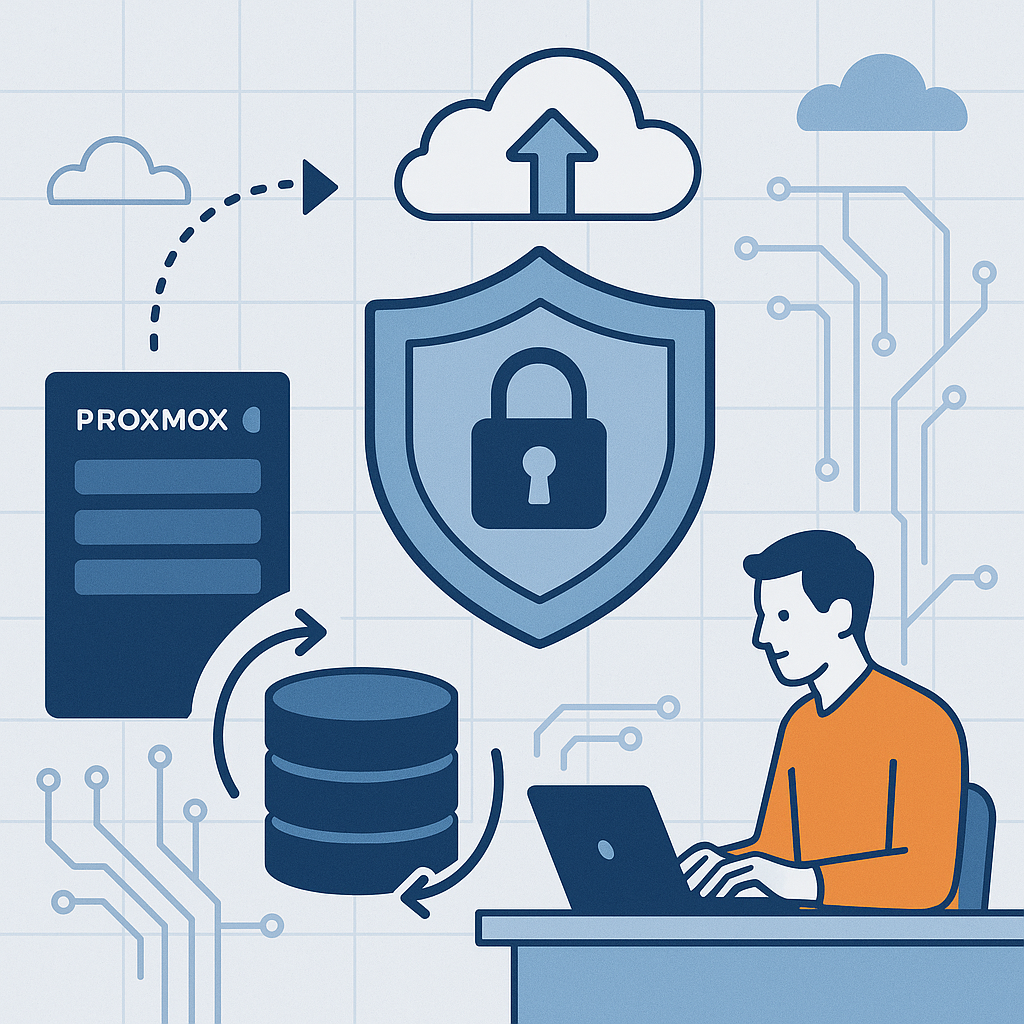The open-source virtualization platform Proxmox has become a popular alternative to VMware, especially since Broadcom’s acquisition and the resulting changes to the VMware partner program. Many tech companies are currently evaluating a migration from VMware to Proxmox. Our experts at Xelon Cloud can help you navigate these changes and find the right solution for your business. But what exactly is Proxmox, and how does this open-source virtualization platform differ from VMware?
Proxmox combines Kernel-based Virtual Machine (KVM) for server virtualization with Linux Containers (LXC) for container virtualization. This allows companies to run both traditional virtual machines (VMs) and containers with flexibility. Through a central web interface, all resources such as computing power, storage, and networking can be managed efficiently.
A key component of Proxmox is its integrated cluster and high-availability management. This feature allows multiple servers to be combined into a single cluster so that workloads are automatically migrated and kept running in case of failures. One frequently cited advantage of Proxmox is its broad support for various storage technologies, ranging from local disks and NFS to iSCSI, ZFS, and Ceph. These storage options can be combined flexibly to meet different infrastructure needs.
With the optional Proxmox Backup Server, incremental and encrypted backups can be created and restored quickly. This ensures that companies can keep their data and services protected at all times and recover them swiftly in case of an emergency.
What are the differences between VMware and Proxmox?
Proxmox is technically very powerful but comes with less pre-configuration than VMware. Many features such as clustering, high availability, and storage integration are built in but require more manual setup and a solid understanding of Linux, networking, and storage systems. For IT service providers who are used to VMware’s centralized management through vCenter and its unified graphical interfaces, Proxmox can initially seem complex and time-consuming to work with.
The VMware alternative Proxmox can initially seem complex because setup, network and storage configuration, as well as cluster and high-availability management, require more manual expertise than with VMware. Since Proxmox is an open-source project with optional enterprise support, companies often need to take on a greater level of responsibility themselves.
Below you’ll find a direct comparison between VMware and Proxmox for Swiss IT service providers.
|
|
VMware |
Proxmox |
| Licensing & Costs | Proprietary software with high licensing and upgrade costs | Open source, free to use with optional enterprise support |
| Flexibility | Limited by vSphere/vCenter and licensing models | Highly flexible, Linux-based, modular, and easily expandable |
|
Setup & Configuration |
Quick to install with many default settings |
Requires onboarding and more complex initial configuration |
|
Clustering |
Easily configured through vCenter |
Built-in but requires expertise in quorum, storage, and networking |
|
Storage |
Proprietary or external storage solutions, additional costs possible |
Broad support for ZFS, Ceph, NFS, and iSCSI, natively integrated |
|
Backup |
vSphere backup tools or third-party solutions |
Proxmox Backup Server with incremental and encrypted backups |
|
Ecosystem / Integrations |
Extensive ecosystem with many third-party tools and APIs |
Fewer integrations, mostly based on open-source tools |
|
Migration & Conversion
|
Easy migration between hosts |
Migration from VMware requires conversion, driver adjustments, and recreation of snapshots |
|
Long-term independence |
Limited due to vendor lock-in |
Very high, no dependence on restrictive partner programs |
Are you still unsure what the changes at VMware mean for your business? Are you wondering which VMware alternatives make sense for your company? Would you like to learn more about the open-source virtualization platform Proxmox?
👉 Book your consultation here.
Can Kubernetes replace VMware?
Many IT leaders are currently asking whether the container orchestration platform Kubernetes (K8s) could serve as an alternative to VMware, and if so, in which use cases. First things first: Kubernetes is not a one-to-one replacement for VMware. While VMware focuses on virtualizing physical servers and provisioning virtual machines (VMs), Kubernetes manages containerized applications at a higher level of abstraction.
For companies that plan to invest in Cloud-native technologies, microservices, and automation over the long term, Kubernetes can be an attractive alternative to VMware. The key requirement is that applications are modernized or newly developed to fit these environments. In such setups, dependency on VMware can be gradually reduced until a full replacement becomes feasible.
In our next blog post, we’ll take a closer look at Kubernetes and outline what it takes for K8s to effectively replace VMware. Stay tuned!
